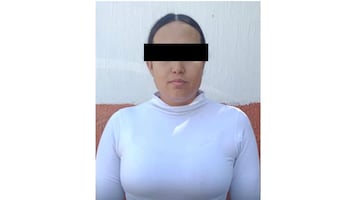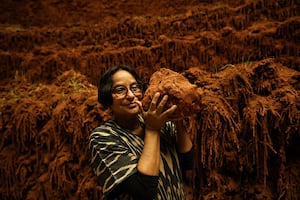, a Mexican company formed by Axel and Alexis Gómez-Ortigoza , has created a bio-material that can be used in the textile industry . It can be used to make footwear, purses, among other objects.
This bio-material was created by using agro-industrial waste coming from packing plants, and taking advantage of the waste transformation work carried out by the bacteria in mango and strawberry residues ; the bio-textile is called Celium and resembles leather .
"Once we collect them, they are transformed into food for bacteria through a biotechnological process patented by the company, and in 15 days, they generate a kind of membrane , which is a bacterial cellulose matrix . Later, they collect it and process it to obtain a textile that resembles leather ," said the biotechnology engineer from the Technological Institute of Higher Studies of Monterrey and co-founder of the Polybion company , Axel Gómez-Ortigoza .
According to the Research and Development Agency , this material provides greater malleability and it's made from organic products that do not pollute the environment .
"The bio-material is carbon neutral, grows 5% faster than animal leather, with 1% of the water footprint ," explained the engineer.
One of the reasons behind the worldwide trend to create materials that can replace animal leather is because animal agriculture is the first cause of global deforestation , 60% of the world's agriculture is used to feed animals ; and the second cause is the presence of carbon in the atmosphere generated by cattle , since it produces large amounts of methane .
"The sacrifice of the animal is done in brutal conditions and to tan the leather , heavy metals such as chrome are used, resulting in 'dead water', which is impossible to process in treatment plants and toxic to the flora and fauna . To make matters worse, when tanning a kilo of leather , approximately 16,000 liters of clean water are sued, said Axel Gómez-Ortigoza .
The production of vegan leather is an alternative to the fur industry since it is possible to make various products with materials that resemble leather but have a minor impact on the environment .
gm
Noticias según tus intereses
[Publicidad]
[Publicidad]














